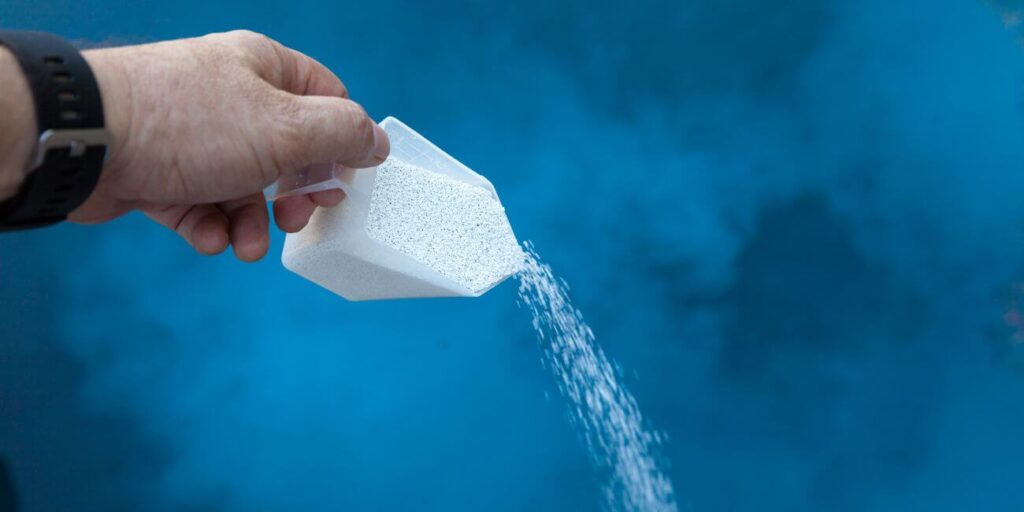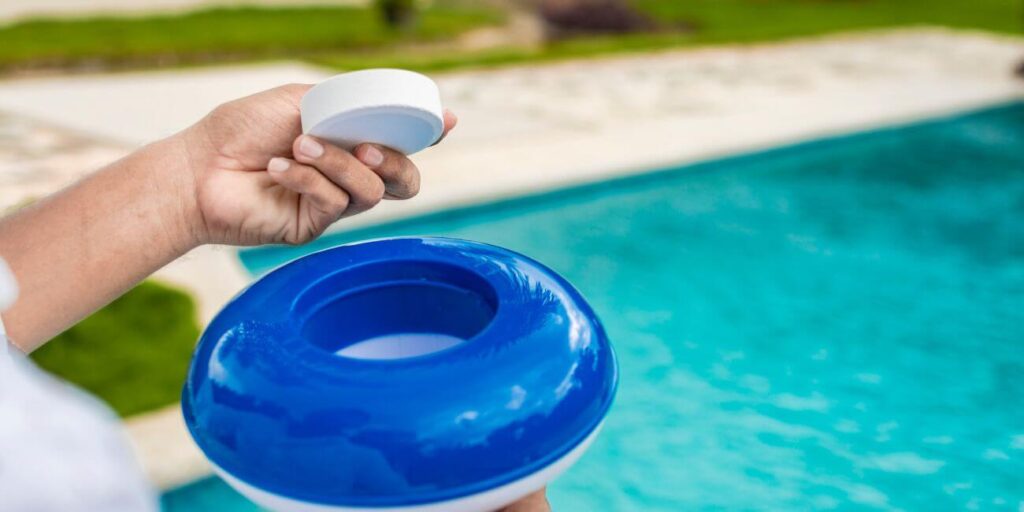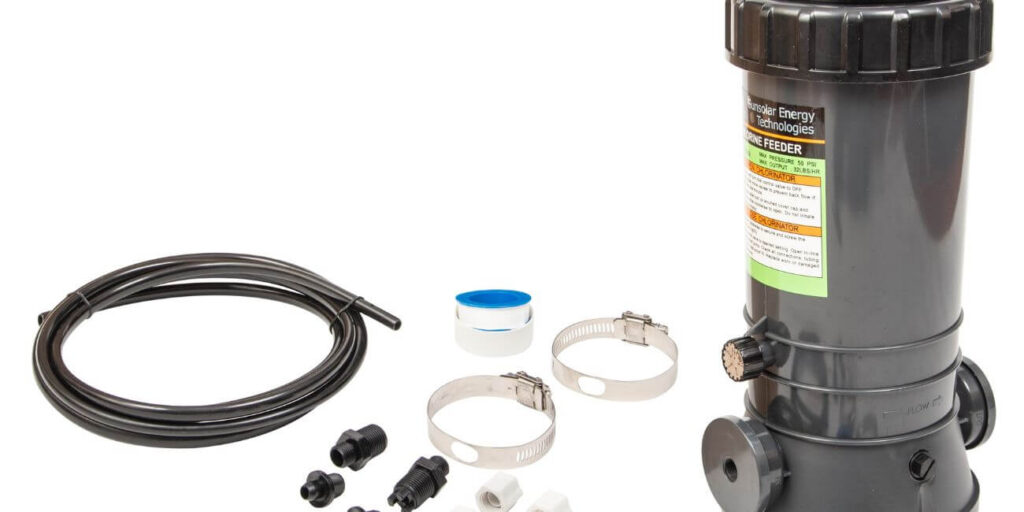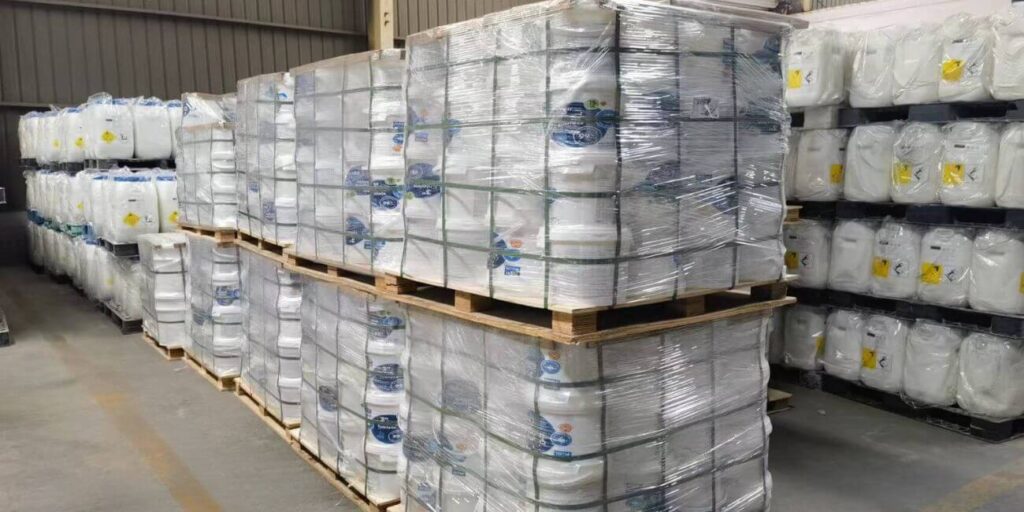The nature of a hygienically clean and safe pool is one of finding a balance between efficient sanitizing practices with the proper use of chemical levels to create healthy conditions for swimming. Pool chlorine tablets probably represent one of the most effective ways of keeping pools free from microorganisms, such as bacteria, algae, and other contaminants. From methods and dosing guidelines to safety measures, this guide covers everything one needs to know in adding pool chlorine tablets to swimming pools.
Table of Contents
Introduction to Pool Chlorine Tablets
Pool chlorine tablets play a major role in maintaining pools, disinfecting the water to kill bacteria, viruses, and algae. Really effective, long-acting, and easy to apply, this is one of the common forms of chlorine among swimming pool owners. Chlorine as a sanitizer is moderately inexpensive, too. With these reasons, chlorine has grown as one of the fast-moving kinds of sanitizing systems for both residential and commercial pools. Pool chlorine tablets slowly dissolve, allowing continuous release into pool water, thereby helping to maintain consistent levels of sanitization.
Calculating the Dosage of Chlorine Correctly
It is important that proper chlorine levels in the pool be gotten for its safety and comfort. The recommended chlorine content of water in a pool falls between 1 and 3 ppm. Within these limits, a pool is sufficiently sanitized to prevent swimmers from getting skin or eye irritations. However, maintaining such limits is not as easy as throwing in some chlorine and then forgetting about it—regular testing and adjustments shall be in order.
Testing Methods
To keep optimal levels of chlorine, you should test the concentration of chlorine in your pool once every week. You can do this with the following testing methods:
- Test Strips: These are inexpensive and easy to handle, instantly, you will have a reading for both chlorine and pH levels within your pool.
- Liquid Test Kits: While a little more involved to manage, they are very accurate and these test kits determine chlorine levels with the use of reagents.
- Professional Testing: Most local pool supply stores will also provide testing. It is a great option when opening or closing your pool, or after persistent water quality issues are experienced.
Types of Chlorine Products
There are several types of chlorine products available and each of these has strong points and best applications.

Pool Chlorine Tablets vs. Granular Chlorine
Pool Chlorine Tablets: These are the most available and advisable type for pool owners owing to their effective and consistent sanitization. They are slow-dissolving, releasing chlorine gradually over time.
Granular Chlorine: It also works effectively in pool water sanitizing, however, it is less convenient since more frequent manual additions into the water mixed well are required. This product usually serves best in smaller pools or in the case of any emergency sanitization needs.
Chlorine Tablet Sizes
By and large, the sizes in which pool chlorine tablets are available are two: 3-inch tablets and 1-inch tablets.
- 3-inch Tablets: These are preferred for larger pools since they are cost-effective and easy to handle. Due to their larger size, they burn very slowly and hence can be used for long-term sanitizing.
- 1-inch Tablets: These, being much smaller in size, dissolve at an extremely faster rate to provide chlorine quicker. Hence, they are ideal for small pools, spas, or hot tubs.
Ways to Add Pool Chlorine Tablets
Once you have found the correct chlorine tablet for your pool, there are a couple of ways in which you can add them to the water:
Floating Chlorine Dispenser
A floating chlorine dispenser-or “chlorine floater”-is a very popular and convenient option. These units float around on the pool surface, releasing chlorine as the inside tablet dissolves. Most floaters have adjustable vents, allowing you to adjust the rate of chlorine release and, thus, fine-tune the sanitization level.

Pros:
- Low cost/easy to implement
- It is easy to adjust chlorine levels by adding/removing tablets
Cons:
- Floater can rest in one spot and produce spotty chlorine distribution
- Can bleach the pool liners if it stays in one spot too long
Skimmer Basket Application
Other effective methods are using pool chlorine tablets in your skimmer basket. The filtration system circulates water over the top of the skimmer basket to help dissolve the tablets and distribute chlorine throughout the water. This can be quick, even distribution because the chlorine will dissolve with the normal flow of the water.
Pros:
- Effectively distributes chlorine
- It utilizes an already existing filtration system of the pool
Disadvantages:
- This can be more wear on the equipment over a period of time depending on the high exposure of chlorinated water in the skimmer itself
- Requires the pump to be on continuously in order for proper chlorination to occur
Automatic Chlorinator
An automatic chlorinator is mounted directly into the filtration system of the pool and distributes chlorine as the water passes through. Pretty convenient and will allow you-with ease-to specify your desired chlorine level and maintain it at that with minimal hassle. An automatic chlorinator is ideal for the busy pool owner who does not want the aggravation daily dealing with his or her pool.

Pros:
- Consistent and precise chlorination
- Minimal hands-on maintenance
Cons:
- It is more expensive than any other methods to install the first time
- It may be necessary to install by a professional authority
Precautions and Safety Measures
Accidents or mishaps related to pool chlorine tablets can be avoided by following some safety precautions:

- Wear protective gear: Chlorine is a strong chemical, therefore, skin or eye irritation may cause it. It is better that people handle this chemical by wearing gloves and goggles.
- Storage: Pool chlorine tablets must be kept away from sunlight or even moisture. They should be stored in a cool, dry well-ventilated location. Each one of the aforementioned factors is a cause of degradation.
- Don’t Mix Chemicals: Pool chlorine tablets should never be mixed with any other type of chemical. Unsafe reactions can occur. All storage instructions are on the packaging and must be followed accordingly.
Common Pool Chlorination Problems and Solutions
Even with that, however, you may find that you need help supplementing pool chlorine tablets. Below are a few basic problems and their solutions:
- Inconsistent Levels of Chlorine: If some areas of the pool have a particularly high level of chlorine, this may be changed through the settings on your chlorine dispenser or by merely adding additional tablets to the skimmer basket.
- Cloudy Water: Cloudy water is usually a sign of pH or some other chemical-related problems in the pool. It can be prevented by conducting regular tests and balancing the water accordingly.
- Chlorine Lock: Chlorine lock is when there is excess amount of stabilizer available that the chlorine becomes ineffective. For instance, partial remedy for this situation is to drain the pool and refill it with new water.
Conclusion
Adding pool chlorine tablets to a swimming pool is quite indispensable in ensuring that there is healthy, hygienic, and fun swimming. You can easily ensure effective chlorination in your pool through the proper type and method of application, frequent testing, and observing safety signs. Whether it’s a floating dispenser, a skimmer basket, or an automatic chlorinator, each has pros and cons. But rest assured, they all should work in sanitizing your pool water marvelously. With just a regular maintenance routine and the proper approach, you will be well on your way to having crystal-clear water all season long.
